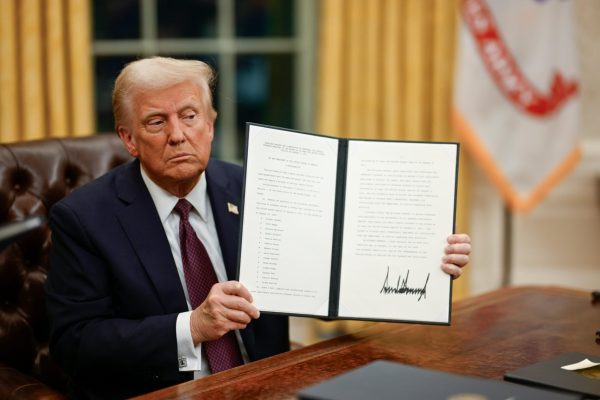Embracing Community: Black History Month at Dickinson
In honor of Black History Month, several Dickinson departments and student groups are presenting a series of community-based events to promote learning about the role of Black Americans in United States history and celebrate Black culture.
The beginning of Black History Month was marked by a game night hosted by the Black Student Union (BSU) led by Annie Bryant ’23. Bryant, an educational studies major, believes that Black History Month is a chance to empower and teach others, describing it as “a time for Black people to shine and have their stories and skills recognized.” Staying true to this idea, BSU also held a networking event during which real estate agent, child advocate and health coach Janene Bryant shared realistic goal-setting exercises. The BSU is currently accepting sign-ups for their next event: a talent showcase on Feb. 24.
Further opportunities for Black history education were offered by two speakers: Erica Armstrong Dunbar and Psyche Williams-Forson. Dunbar, a social historian, distinguished professor of history at Rutgers University and director of the Association of Black Women Historians, delivered the 2023 Black History Month keynote address on Feb. 15. Her Clarke Forum lecture, titled “Running from the Washingtons: Ona Judge and the Founding of a Nation,” told the story of Ona Judge, an enslaved woman who served (and later escaped from) George Washington’s household.
On Feb. 22, Psyche Williams-Forson, an expert in Black Food Studies and Professor of American Studies at the University of Maryland College Park, will deliver a keynote address in conjunction with Love Your Body Week. Her lecture, titled “Bearing Witness to Myself: Womanness, Blackness, Fatness, and the Twisted Work of Trauma,” analyzes the intersection of Black womanhood, wholeness and redefining healing.
Dickinson’s Black History Month celebrations also consist of events that include the alumni community. Reverend Yvette Davis, Director of the Popel Shaw Center, will engage with alumni through tours at the African American Museum in Philadelphia and the National Jazz Museum in Harlem.
The origins of Black History Month can be traced back to Carter G. Woodson, an American historian. In 1926, Woodson, the second Black American to earn a doctorate degree from Harvard University, established Negro History Week as an initiative to commemorate Black heritage. Fifty years later, in 1976, February was officially nationally recognized as Black History Month and has been observed ever since.
Not only does Black history intertwine with U.S. history, it plays a role in understanding Dickinson’s history as well. Important figures include Esther Popel Shaw and John Robert Paul Brock, the first Black man and woman to graduate from Dickinson. Additionally, the House Divided Project, directed by Professor of History Matthew Pinkser, provides historical information on Noah and Carrie Pickney, Henry Spradley and Robert Young, formerly enslaved Black Americans who were notable employees of the college in the late 1800s. The efforts of the House Divided Project, which have contributed to the naming of Pickney Gate and Spradley-Young Hall, show that learning about Black history does not have to be limited to one month, a point that BSU President Annie Bryant also emphasizes. As she puts it, “Black history matters every month, every year, and every day.”






